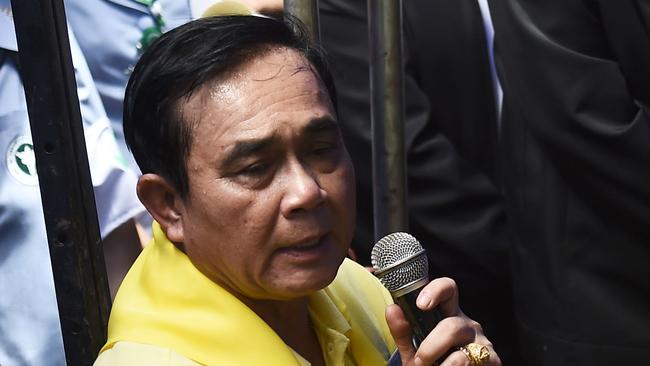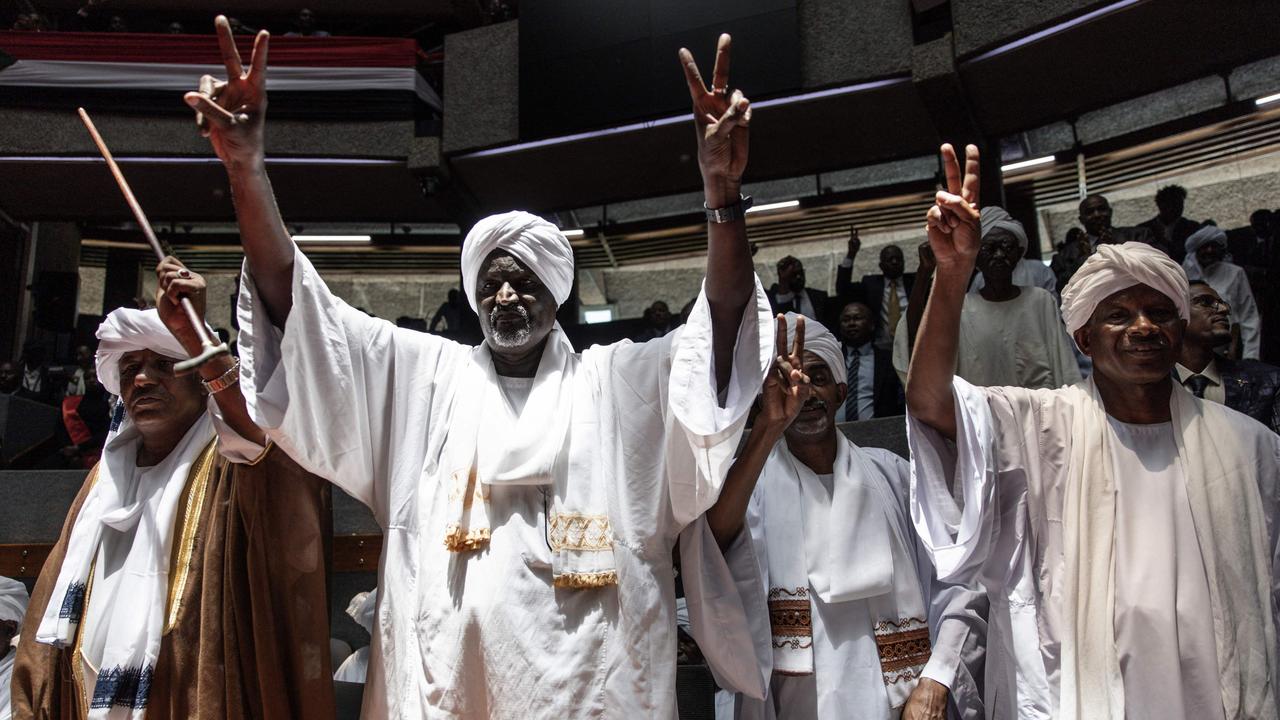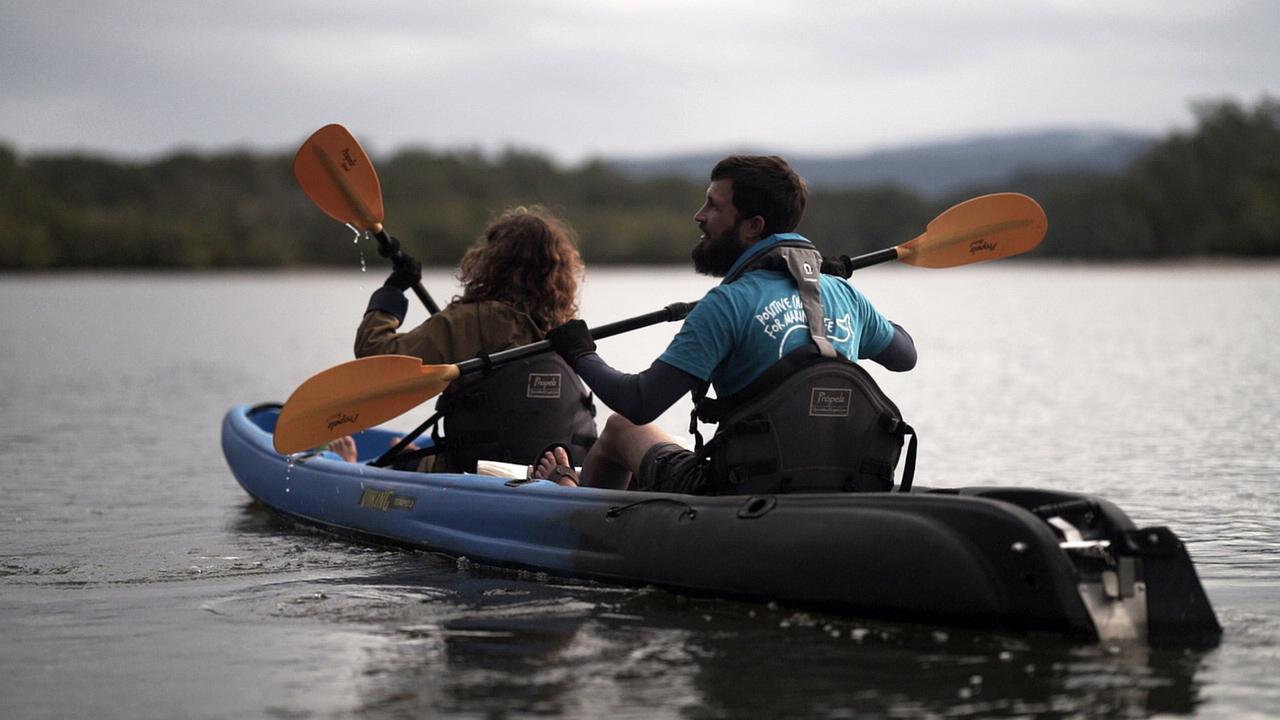Thai snub imperils Myanmar summit
An ASEAN crisis meeting on Myanmar will go ahead without the Thai PM — the junta’s closest regional ally — whose withdrawal potentially dashes hopes of a united front against the coup.

An ASEAN crisis meeting on Myanmar will go ahead without Thai Prime Minister Prayuth Chan-ocha — the junta’s closest regional ally — whose withdrawal from the summit potentially dashes hopes for regional leaders to present a united front against the coup.
It was Thai authorities who announced last weekend that Myanmar junta leader Min Aung Hlaing would attend Saturday’s Association of Southeast Asian Nations leaders’ talks in Jakarta, the result of weeks of lobbying by Indonesia, which has been among the most vocal regional critics of the February 1 coup that toppled the Aung San Suu Kyi government.
The meeting was intended to bring all nine ASEAN leaders physically together with the junta leader to resolve the Myanmar crisis and de-escalate the violence that has so far claimed the lives of at least 738 civilians and seen 3261 people detained.
While the leaders of Singapore, Indonesia, Malaysia, Vietnam, Laos, Cambodia and Brunei have confirmed their attendance, Thailand announced late on Monday that it would send Deputy Prime Minister and Foreign Minister Dom Pramudwinai.
Some independent Myanmar media also reported on Tuesday that Min Aung Hlaing would attend only by videoconference, although ASEAN officials said they were still confident he would fly in to the Indonesian capital.
The Philippines’ President Rodrigo Duterte, whose health has been the subject of intense domestic rumour, is also yet to confirm his participation.
Hunter Marston, a non-resident fellow at the Pacific Forum, told The Australian Mr Prayuth’s decision not to attend was a “signal he does not want to be involved in any strong message to Myanmar that ASEAN is against the coup”.
“Skipping the summit is a clear message to Min Aung Hlaing that he stands with him. It’s a big blow to any hope of ASEAN unity, which was already pretty thin.”
Ahead of Saturday’s meeting, UN Secretary-General Antonio Guterres urged regional actors to “leverage their influence to prevent further deterioration and, ultimately, find a peaceful way out of this catastrophe”. His predecessor, Ban Ki-moon, has also appealed to ASEAN not to use its non-interference principle as justification for “inaction in the face of serious human rights abuses”.
“They should agree that a high-level delegation will visit Myanmar to engage with all relevant parties,” Mr Ban said. “I am sincerely appealing to ASEAN leaders to step up together with the UN to help the people and country of Myanmar.”
While Indonesia has worked hard to get all leaders around the table to discuss what many fear could escalate into a regional crisis, Jakarta officials have been reluctant to pre-empt the outcome. Ade Padmo Sarwono, Indonesia’s permanent representative to ASEAN, said the meeting would likely focus on a humanitarian response as a first step, and in de-escalating violence to lay the groundwork for dialogue between the two sides.
“All ASEAN members are concerned about the humanitarian situation in Myanmar right now,” Mr Sarwono said.
“We need to have a situation where all parties are able to sit together. We need to stop the violence and provocation to make the situation conducive to dialogue.
“In the future, it is important to hear from both sides but what is important right now is how to stop the violence, and humanitarian considerations.”
Myanmar’s newly formed National Unity Government — a parallel administration comprising ousted MPs from Ms Suu Ki’s National League for Democracy government and ethnic political leaders — has criticised ASEAN for not inviting it to the summit, as have dozens of civil society and rights groups.
A joint statement from more than 100 regional groups on Tuesday expressed concern over divisions within ASEAN that could block “meaningful action”.
“The differing positions of ASEAN member states has made it difficult for ASEAN to reach a consensus and resulted in equivocations and delayed responses, while the military junta continued its murderous attacks on Myanmar’s people,” it said.
Among the group’s recommendations was for ASEAN to reject the coup, send a high-level delegation to Myanmar, and recognise the NUG as the legitimate government.



